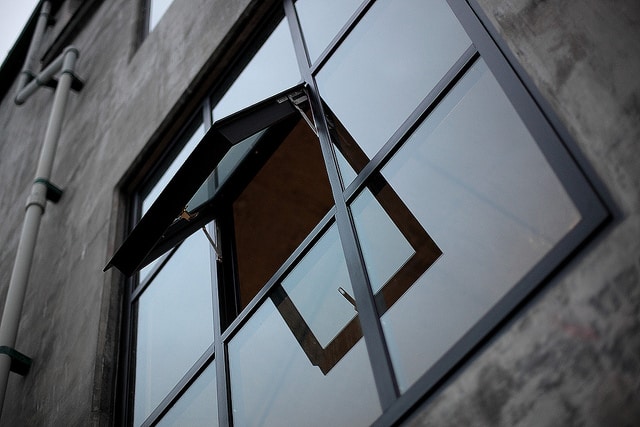The room where I co-teach a seminar on Jesuit spirituality this semester is like Goldilocks’ nightmare. A few weeks ago the room was way too cold, and the loud whooshing of air through the vents was drowning out the professors and students, many of whom were bundled up in scarves and fleeces even though it was still, technically, summer. Lately, it’s been too hot, so we prop open the broken windows to allow the cool evening air to flow through. Even though we never know what kind of weather we’re going to get when we arrive I’ve found that I’m sure to get a certain pattern of speech from my students that is my nightmare as both an instructor and as a Jesuit: an onslaught of apologies.
The participation of the students in class is good and I want more of it. Even more so because our class is a seminar, and it’s participation that drives the class forward. But almost every retort from them, seemingly every question or comment, starts with an apology of sorts. “This may be a stupid question…” they begin. Or “I’m sure this isn’t very well-thought out…” they sheepishly mutter. Sometimes the apology comes in the form of a comparison: “I’m sure this isn’t as clear [or as ‘deep,’ or as erudite or as concise] as what others have shared…” As I listen to the questions and comments that follow–all of which are variously valid, thoughtful and insightful–I wonder: when were you were duped into thinking that what you say isn’t worthy or good? What are you apologizing for?
Why apologize for being curious, for wanting an answer to a question that confuses you? Why apologize for giving voice to your thoughts, thoughts you half-strangled as they issued from your lips? Why apologize for being you?
***
In his 1968 play, “The Price,” Arthur Miller tells the story of two estranged brothers who are brought together to sell their parents’ possessions after their death. One brother, Victor, a policeman, would rather just get rid of everything and be done with it all: the memories of his parents, the tortured relationship with his more successful brother, the headache of selling things and haggling over the price with strangers. He doubts that anything in the cluttered attic of the brownstone is worth any money at all. His wife, Esther, asks him the question I want to ask of my students:
Esther:…There could be some real money here.
Victor: I doubt that–there are no antiques or–
Esther: Just because it’s ours why must it be worthless?
Victor: Now what’s that for?
Esther: Because that’s the way we think!–We do!
That’s the way we think–we do. We think that our imperfections outweigh the value of our opinions, our stuff, ourselves. We think that because it’s ours (and not the teacher’s, not the scholar’s, not the expert’s) it must be worthless.
Now, there are times when apologies are in order, of course, and repentance has a role to play in our lives, even daily. But the seminar room doesn’t seem to be the time or place. My class is on Jesuit spirituality and the sharing and questions of the students are inherently experiential. An apology for your experience or for a question about your experience seems to me to be only a lack of self-trust and self-respect, and it makes me sad and scared.
My fear is that too often we think that what we have to offer isn’t worth anything and so we apologize for what we have and what we are. The thoughts, comments and questions of my students are what they have to give, and I believe they’re worth a great deal, for these thoughts speak of their past experiences, and of their hopes for the future. Indeed, their thoughts, comments and questions indicate who they are and who they want to become.
I’ve been grateful to those in my life who’ve sat through my half-baked ideas and ‘stupid’ questions, who helped me to see that my experiences, thoughts and ideas were worthy of my voice.
So speak up, please. But no matter how you see yourself, there’s no need to apologize for being you.
***
The cover image, by Flickr user Lee Morgan , can be found here.



